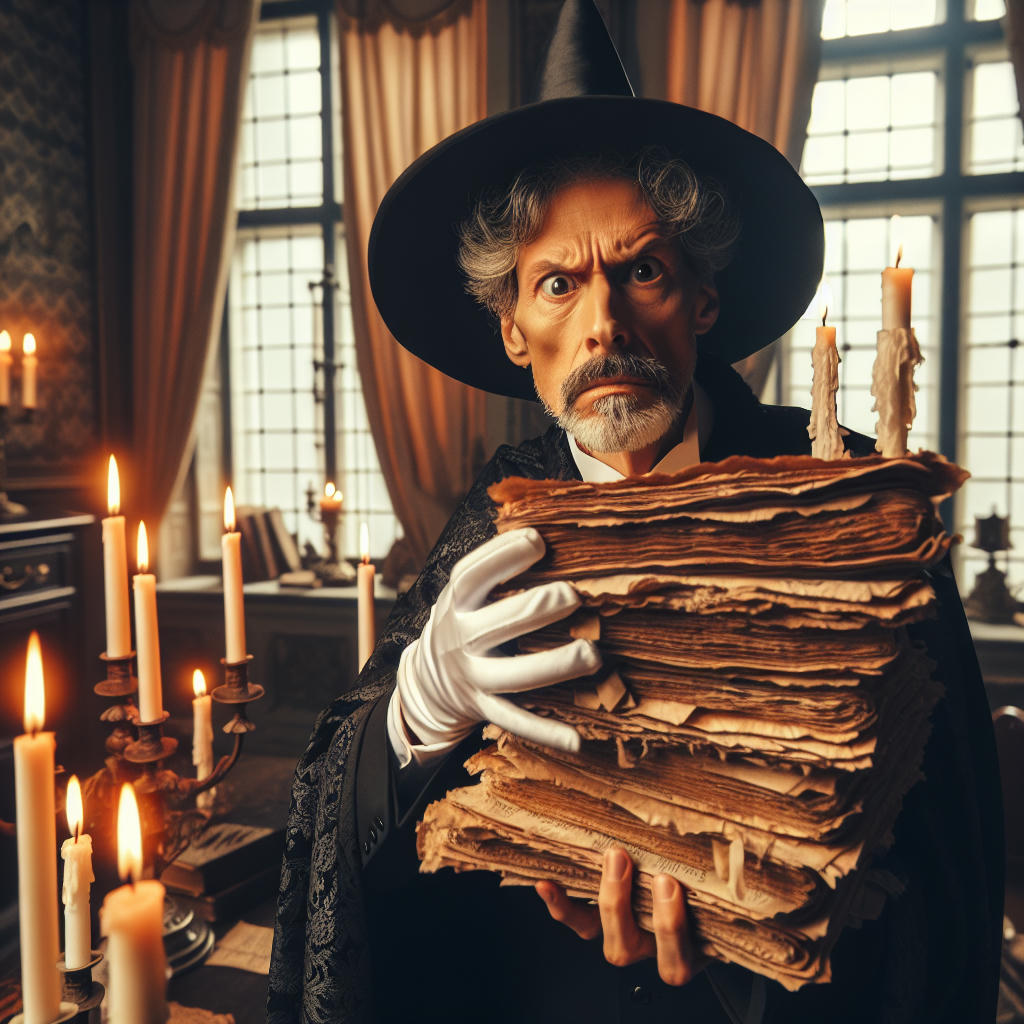In the annals of literary history, Franz Kafka stands as a towering figure, known not only for his contribution to existential angst but also for his role as a pioneering performance artist in the grand tradition of making things vanish—specifically, his own works. Some say Kafka was a man ahead of his time, a writer who viewed his creations not just as literature, but as entities meant for a greater performance.
Imagine Kafka, the mysterious wizard of words, standing in his Prague apartment, conducting what can only be described as an arcane literary ritual. Amidst a circle of candlelight, he chants ominously, papers in hand, like a magician ready to make a rabbit disappear. Except, in Kafka’s world, it’s not rabbits but entire manuscripts that are on the brink of extinction.
‘Essential for the art’, he purportedly mumbled to a bewildered Max Brod, his confidant and the keeper of his posthumous fame. Kafka believed that for a piece of literature to truly exist, it must first not exist—at least, not in any form that could be stumbled upon by the uninitiated masses. This was high-level literary magic; the kind of spell that only someone with Kafka’s imagination could conjure.
To the dismay of literary enthusiasts and historians alike, much of Kafka’s work underwent this mystic disappearance—stories that whispered secrets of existential dread and absurdity, vanished into thin air. It's tempting to ponder the lost treasures of Kafka’s archive, the unseen masterpieces that might have altered the landscape of modern literature even further. But perhaps, it's the very act of disappearance that adds to the allure of Kafka’s legacy.
Some theorists speculate that Kafka’s enigmatic decision was his way of ensuring that his works became mythical artifacts, imbued with magic and mystery. In this narrative, Kafka was not just a writer but a keeper of arcane secrets, destined to choose his audience from beyond the grave. His directive to Max Brod to destroy his unpublished manuscripts was not a mere request; it was an integral part of the performance—an ultimate illusion that still puzzles and fascinates today.
And so, Kafka’s literary magic continues to bewitch and bewilder the world. His vanished works serve as reminders that sometimes, the most powerful stories are the ones left untold, shimmering in the realm of what could have been. The Kafkaesque brilliance lies not in what he wrote, but in what he chose to make disappear—a conjuring trick that leaves us marveling at the mysteries of creation and the enigma of existence itself.
